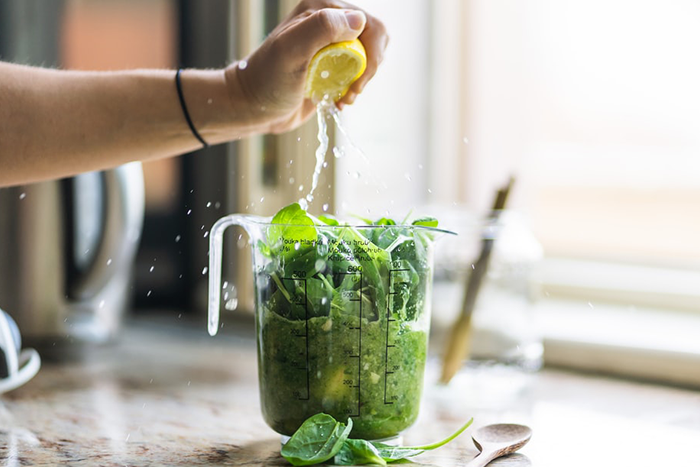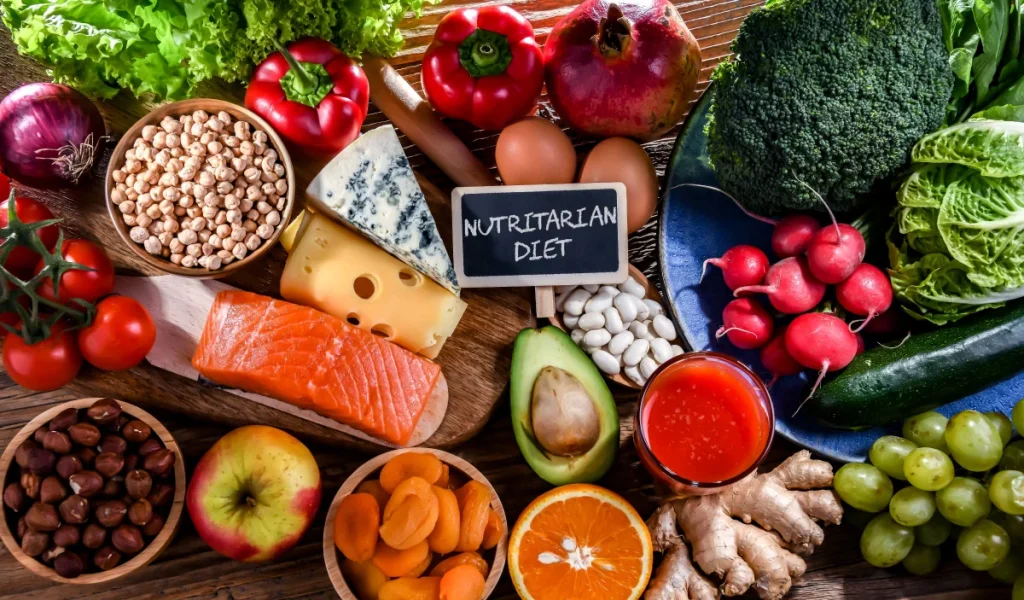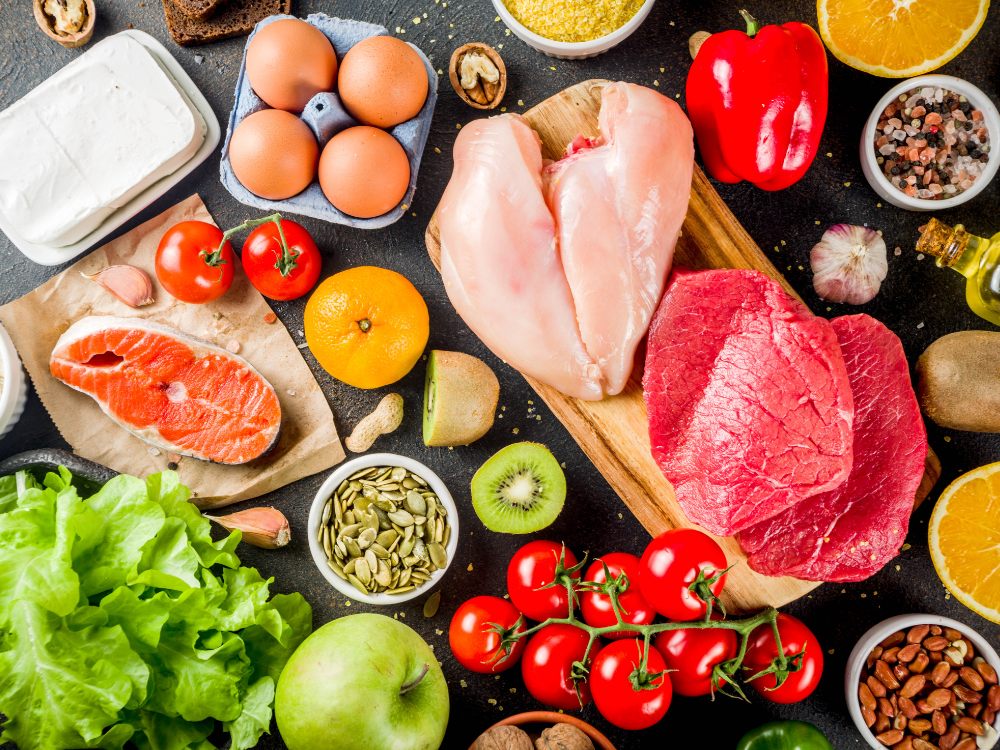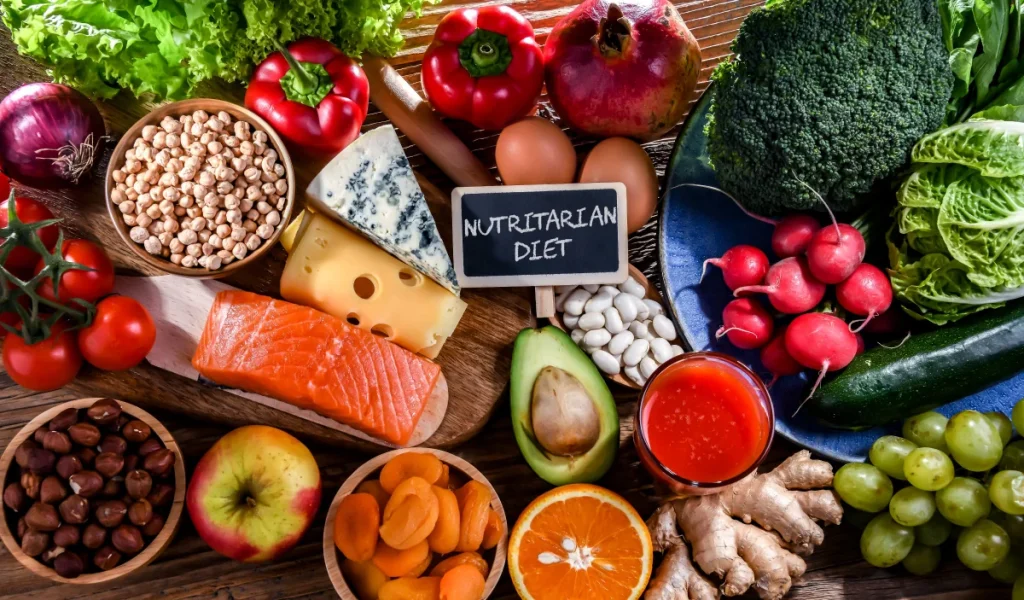
Building an Anti-Inflammatory Plate
Your diet plays a crucial role in managing arthritis symptoms. Follow this balanced approach to nutrition:
The Arthritis-Friendly Plate Formula
- 50% Colorful fruits and vegetables
- 25% Lean protein sources
- 25% High-fiber whole grains
- Include healthy fats with every meal
Sample Daily Eating Plan
- Breakfast: Oatmeal with walnuts, blueberries, and cinnamon
- Lunch: Spinach salad with grilled chicken, avocado, and olive oil dressing
- Dinner: Baked salmon with roasted Brussels sprouts and quinoa
- Snacks: Apple slices with almond butter; carrot sticks with hummus
Key Food Groups for Joint Health
Anti-Inflammatory Power Foods
- Fatty Fish: Salmon, mackerel, sardines (2-3 times weekly)
- Rich in omega-3 fatty acids that reduce inflammation
- Colorful Produce: Berries, leafy greens, bell peppers
- Packed with antioxidants that fight oxidative stress
- Healthy Fats: Olive oil, avocados, nuts and seeds
- Contain compounds that help block inflammation
- Whole Grains: Oats, brown rice, quinoa
- High in fiber, which reduces inflammatory markers
Foods to Limit or Avoid
- Processed meats and fried foods
- Sugar-sweetened beverages and snacks
- Refined carbohydrates (white bread, pastries)
- Excessive alcohol consumption
Exercise and Movement Strategies
Regular, appropriate exercise is essential for maintaining joint function and reducing stiffness.
Recommended Exercise Types
- Low-Impact Aerobic Exercise:
- Swimming or water aerobics
- Stationary cycling
- Walking on soft surfaces
- 30 minutes daily, 5 times weekly
- Strength Training:
- Light weights or resistance bands
- Focus on major muscle groups
- 2-3 times weekly on non-consecutive days
- Flexibility and Balance:
- Gentle stretching
- Tai Chi or yoga
- Range-of-motion exercises
Exercise Guidelines
- Warm up for 5-10 minutes before exercising
- Start slowly and gradually increase intensity
- Stop if you experience sharp pain
- Use proper form and technique
- Listen to your body’s signals
Pain Management Techniques
Heat and Cold Therapy
- Use heat for:
- Morning stiffness
- Muscle relaxation
- Before exercise
- Methods: Warm showers, heating pads, warm compresses
- Use cold for:
- Acute inflammation
- Painful, swollen joints
- After activity
- Methods: Ice packs, cold gel packs, cold compresses
Mind-Body Approaches
- Meditation and deep breathing
- Guided imagery
- Mindfulness practices
- Stress reduction techniques
Daily Living Adaptations
Joint Protection Strategies
- Use larger, stronger joints for tasks
- Avoid positions that stress joints
- Maintain proper posture
- Use assistive devices when needed
Energy Conservation
- Pace your activities throughout the day
- Alternate between sitting and standing
- Take regular rest breaks
- Plan ahead to avoid rushing
Home and Work Modifications
- Use ergonomic tools and furniture
- Keep frequently used items within reach
- Install grab bars in bathrooms
- Use lever-style door handles
Supplement and Medication Support
Nutritional Supplements (Consult your doctor first)
- Glucosamine and chondroitin
- Omega-3 fish oil
- Vitamin D and calcium
- Turmeric/curcumin
Medication Management
- Take medications as prescribed
- Never stop medications abruptly
- Report side effects to your doctor
- Keep a medication schedule
Creating Your Arthritis Action Plan
Daily Maintenance
- Morning: Gentle stretching, warm shower
- Throughout day: Regular movement breaks
- Evening: Relaxation techniques, joint care
Flare-Up Management
- Rest affected joints
- Use cold compresses
- Practice gentle range-of-motion
- Contact your healthcare provider if severe
Prevention Strategies
- Maintain healthy weight
- Stay active regularly
- Eat anti-inflammatory diet
- Get adequate sleep
Practical Success Tips
Weekly Planning
- Meal prep on weekends
- Schedule activities wisely
- Prepare medications in advance
- Plan for rest periods
Smart Shopping List
- Fresh fruits and vegetables
- Lean proteins and fish
- Whole grains and legumes
- Healthy fats and oils
- Herbs and spices for flavor
Lifestyle Habits
- Stay hydrated with water and herbal tea
- Maintain good sleep hygiene
- Manage stress effectively
- Build a support network
Remember: Consistency is more important than perfection. Small, sustainable changes to your daily routine can significantly improve joint comfort and overall quality of life. Work with your healthcare team to develop a personalized approach that works for your specific type of arthritis and lifestyle needs. Track your progress and adjust your plan as needed to find what works best for you.




